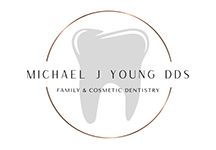 Do you grind your teeth? If so, you could be endangering your smile. Without treatment bruxism, the term for chronic teeth grinding, can damage teeth and increase the risk of serious oral health complications. Fortunately, there are noninvasive and comfortable options for treating this disorder.
Do you grind your teeth? If so, you could be endangering your smile. Without treatment bruxism, the term for chronic teeth grinding, can damage teeth and increase the risk of serious oral health complications. Fortunately, there are noninvasive and comfortable options for treating this disorder.
Frequently Asked Questions About Bruxism
Question: What causes the disorder?
Answer: Why do we develop regular teeth grinding? The causes may include missing teeth, misalignment, TMJ disorder, or injury to the jaw or face. However, one of the more common causes is stress. A high amount of anxiety can lead to a higher risk of bruxism.
Question: How do I know if I need treatment?
Answer: Most people actually grind their teeth at night, which means unless a partner notifies them they may not be aware. There are symptoms to watch for during the day, however. For example, if you experience a soreness in the jaw, headaches, earaches, or persistent toothaches, then you should see a dentist for a diagnosis. Otherwise, your teeth may become cracked or chipped.
Question: Can I make changes in my daily life to address the problem?
Answer: You can try to reduce stress in your daily life. You can also cut back on the consumption of caffeine and eating hard or chewy foods. These steps may help reduce the frequency of grinding episodes.
Question: How does the doctor treat the issue?
Answer: If lifestyle changes fail to adequately address the issue then you need to see your dentist. The doctor may suggest an oral appliance. The device looks very similar to a nightguard, but helps reposition the jaw to ease tension and provides a barrier between upper and lower teeth, preventing further damage from grinding. If you have any questions about our bruxism treatment options then please contact our office today.

